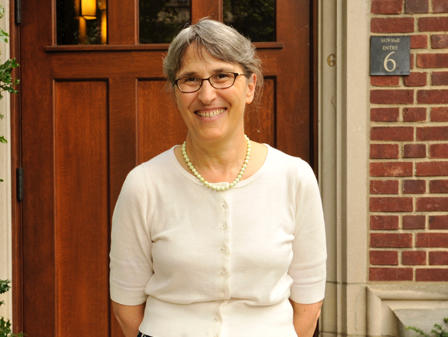Podcast episode
September 27, 2025
Episode 210: Jewish Apocalypse in the Seventh Century: Martha Himmelfarb on the Sefer Zerubbabel

[Corrigendum: Prof Himmelfarb states at one point that Hillel Newman (article cited below) argues for a fifth-century dating for the S.Z.; in fact, he argues for the sixth century]
It is a real delight to interview Martha Himmelfarb. Be sure to check out her publications; for lovers of the esoteric side of Judaism (not mainly the late stuff, but the Second-Temple stuff, going into the first millennium) basically everything she has researched is worth knowing about. In this episode we discuss the Sefer Zerubbabel, which we first alluded to in Episode 206. This is a Jewish apocalyptic future-history leading up to the end times, when the Temple will descend from the heavens, the evil Armilus will deceive many, but the Davidic messiah will come to set everything straight in the end.
Topics of discussion include:
- A basic summary of the plot,
- The usual discussion of sources and dating (Himmelfarb leans toward the fairly-standard ‘after the fall of Jerusalem to Shapur, but before the Arab conquests’ range – thus, early seventh century – but we discuss alternative views as well),
- The degree to which we can say much about eschatological expectations among Jews in the period before Sefer Zerubbabel (not very much, it turns out),
- The figure of Metatron/Michael in the book (including the possibility that this book is our first datable appearance of the all-important angelic figure of Metatron),
- The figure of Armilus, the `baddy’ of the piece,
- The work’s Nachleben in later Judaism (including in Sabbatian/Frankist milieux),
- The figure of Hephzibah, the mother of the messiah, a fascinating female warrior figure who does not seem to have made the cut in later Jewish traditions about the end times.
 Interview Bio:
Interview Bio:Martha Himmelfarb is Emerita Professor of Religion at Princeton University, and author of a crucial body of work on Second-Temple Judaism, apocalyptic, the Hekhalot literature, Jewish and Christian cosmic ascent-literature, and a host of other subjects dear to our heart here at the SHWEP.
Works Cited in this Episode:
Primary:
Joshua ben-Levi at the gates of Rome anecdote: Babylonian Talmud, b. Sanhedrin 98a.
Secondary:
John J. Collins. Daniel. Hermeneia – A Critical and Historical Commentary on the Bible. Fortress Press, Minneapolis, MN/Augsburg, 1993.
Martha Himmelfarb. Jewish Messiahs in a Christian Empire: A History of the Book of Zerubbabel. Harvard University Press, Cambridge, MA/London, 2017.
Hillel I. Newman. Dating Sefer Zerubavel: Dehistoricizing and Rehistoricizing a Jewish Apocalypse of Late Antiquity. Adamantius, 19:324–36, 2013.
Yakir Paz. Metatron is not Enoch: Reevaluating the Evolution of an Archangel. Journal for the Study of Judaism, 50:1–49, 2019.
Gershom G. Scholem. Jewish Gnosticism, Merkabah Mysticism, and Talmudic Tradition. Jewish Theological Seminary, New York, 2 edition, 1965.
Peter Schäfer. Metatron in Babylonia. In Ra’anan Boustan, Martha Himmelfarb, and Peter Schäfer, editors, Hekhalot Literature in Context: Between Byzantium and Babylonia, pages 29–39. Mohr Siebeck, Tübingen, 2013.
Alexei M. Sivertsev. Judaism and Imperial Ideology in Late Antiquity. The University Press, Cambridge, 2011.
Recommended Reading:
SHWEP Episode 210 Recommended Reading
Themes
Apocalyptic, Eschatology, Islam, Jewish Messianism, Judaism, Metatron, Pseudo-Methodios, Qumran Scrolls, Rabbinic Judaism, Sabbatai Tzvi, Sacred Kingship, Sefer Zerubbabel


Daniel White
October 1, 2025
I see you listed “ The Eschatological Calendar of Sefer Zerubbabel” in the recommended reading but is there a single book on the subject of Jewish Eschatology that you or your esteemed guest can recommend?
Earl Fontainelle
October 3, 2025
Prof Himmelfarb replies: “It’s a great question, and there probably should be such a book, though it would have a lot to cover”, but there isn’t. Someone needs to get on the case!